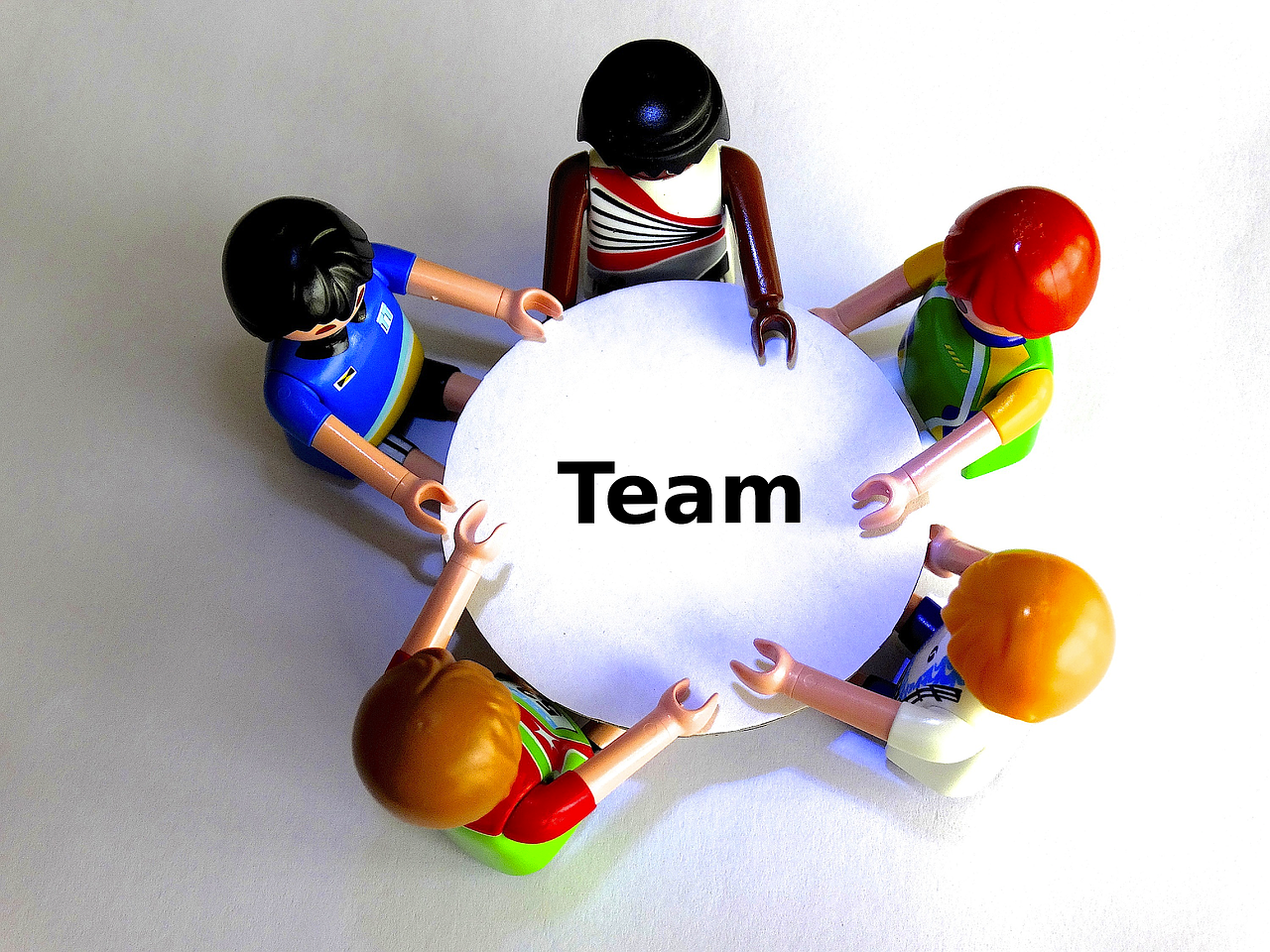太實用!從開會常用詞句,速學「商務會議英語」
Many of us must attend meetings daily at our jobs. Most of the times it is a necessary and useful part of the day. 很多人的工作每天都要開會,大致上來說,開會既有其必要,也有所助益。
The dialogue in this article is an example of a typical business meeting. As you will see, a typical business meeting can be divided into five parts, each using specific language. We’ll examine this example business meeting dialogue and provide key language and phrases appropriate for typical business meetings. 文章裡頭的對話是一般商務會議的範例,待會你就會看到商務會議大都可以分成五個部分,各有各的專門用語,我們會好好地來看這則對話,順便學學商務會議會用到的關鍵詞語。
Opening the Meeting 會議開始
- Good morning/afternoon, everyone. 大家早安或是大家午安。
- If we are all here, let’s … 既然大家都到齊了,那我們就……
- get started. 開始
- start the meeting. 開始
- 開始
- Welcome everyone, it’s good to see you all here today. 歡迎,大家都來了,好極了。
Welcoming and Introducing Participants 歡迎與會者,介紹他給在場的人認識
- Please join me in welcoming (name of participant). 我們一起來歡迎(與會者的名字)。
- We’re pleased to welcome (name of participant). 很高興能請到(與會者的名字)。
- It’s a pleasure to welcome (name of participant). 很榮幸請到(與會者的名字)。
 Dialogue example: 對話範例
Dialogue example: 對話範例
Chair: If we are all here, let’s get started. First of all, I’d like you to please join me in welcoming Jack Peterson, our Southwest Area Sales Vice President. 主席:既然大家都到了,那我們就開始吧,首先呢,我想請大家跟我來歡迎傑克·匹特森,他是我們西南區的銷售副總。
Jack: Thank you for having me, I’m looking forward to today’s meeting. 感謝各位邀請我來,我很期待今天這場會議。
Stating the Principal Objectives of a Meeting 陳述會議的主要目標
- We’re here today to … 我們今天開會就是要……
- Our aim is to … 我們的目標是要……
- I’ve called this meeting in order to … 我之所以召開這場會,就是要……
- By the end of this meeting, I’d like to have … 會議結束前,我想要……
Giving Control to Another Participant 把場子交給另一位與會者
- I’d like to hand this over to (name of participant), who is going to lead the next point. 我要把麥克風交給(與會者的名字),他會主講下一個議題。
- (Name of participant), over to you. (與會者的名字),交給你了。
- Okay, I’d like to give the floor to (name of participant). 好,接下來換(與會者的名字)發言了。Dialogue example: 對話範例

Chair: The main focus of today’s meeting is to discuss ways of improving sales in rural market areas. 今天這場會的重點是如何提升鄉村區的市場銷售量,大家來討論一下辦法。
First, let’s go over the report from the last meeting which was held on June 24th. 首先,我們來看一下上一場會議的報告,開會日期是六月二十四號。
Tom, over to you. 湯姆,換你發言了。
Introducing the Agenda 介紹議程
- Have you all received a copy of the agenda? 大家都拿到議程表了嗎?
- There are three items on the agenda. First, … 議程有三項,首先……
- Shall we take the points in this order? 我們也照此順序來聽取大家的見地好嗎?
- If you don’t mind, I’d like to …如果大家不介意的話,我想……
- go through the agenda items in order. 照順序來討論議程。
- skip item 1 and move on to item 3. 跳過第一項,直接討論第三項。
- I suggest we cover item 2 last. 我建議把第二項留到最後討論。
Moving Forward 繼續
- So, if there are no questions, let’s move on to today’s agenda. 如果沒問題的話,我們就來看今日議程。
- Shall we get down to business? 我們來辦正事吧?
- If everyone is clear on that, let’s start with new business. 如果大家都清楚了,我們來討論別件事吧。
- If there are no further comments, I’d like to move on to today’s topic. 如果大家沒有其他話要說的話,我想要討論今天的主題。
Dialogue example: 對話範例
- Chair: Thank you, Tom. So, if there are no questions about that, let’s move on to today’s agenda. Have you all received a copy of today’s agenda? 主席:湯姆,謝謝你。如果沒問題的話,我們就來看今日議程,大家都拿到議程表了嗎?
If you don’t mind, I’d like to skip item 1 and move on to item 2 – Sales improvement in rural market areas. 如果大家不介意的話,我想跳過第一項,直接討論第二項:提升鄉村區的市場銷售量。
Jack has kindly agreed to give us a report on this matter. Jack? 傑克人很好,替我們做了份報告。傑克?
Asking for Opinions 詢問意見
- Do you (really) think that… 你覺得……
- (Name of participant) can we get your input? (與會者的名字),能讓我們聽聽你的意見嗎?
- How do you feel about…? ……你以為如何?
Giving Opinions 給意見
- I (really) feel that… 我覺得……
- In my opinion,… 照我看來,……
- The way I see things… 我是覺得……
- If you ask me,… 如果你問我的話,……
- I tend to think that… 我是認為……
Agreeing with Other Opinions 附議
- Exactly! 沒錯!
- That’s (exactly) the way I feel. 我也這麼覺得。
- I have to agree with (name of participant). 我同意(與會者的名字)。
Disagreeing with Other Opinions 意見相左
- Up to a point I agree with you, but… 我還算贊同你,不過……
- (I’m afraid) I can’t agree. 我不這麼認為。
I see what you’re saying, but don’t you think… 我懂你的意思,但你不覺得……
Dialogue example: 對話範例
Jack: Before I begin the report, I’d like to get some ideas from you all. 在我報告前,我想聽大家的想法。
How do you feel about rural sales in your sales districts? I suggest we go around the table first to get everyone’s input. 你們怎麼看自己銷售區的鄉村市場銷售量?我建議我們先來聽聽大家的意見。
John: In my opinion, we have been focusing too much on urban customers and their needs. 我覺得我們一直都過於偏重都會區客戶。
Alice: I’m afraid I can’t agree with you. 我不同意你的說法。
Asking for Repetition 請再說一遍
- I didn’t catch that. Could you repeat that, please? 我沒聽懂,你可以再說一次嗎?
- I missed that. Could you say it again, please? 我沒聽到,你可以再說一次嗎?
- Could you run that by me one more time? 你可以再說一次嗎?
Asking for Clarification 請說明
- I’m afraid I don’t quite understand what your are getting at. 我搞不清楚你的意思。
- Could you explain to me how that is going to work? 你可以跟我說明一下這會怎麼運作嗎?
- I don’t see what you mean. Could we have some more details, please? 我不懂你的意思,可以跟我們說詳細情況嗎?
Dialogue example:
Donald: Excuse me, I didn’t catch that. Could you repeat that, please? 抱歉,我沒聽懂,你可以再說一次嗎?
Alice: I just stated that we need to give our rural sales teams better customer information reporting. 我剛剛說我們需要給鄉村的銷售團隊良好的客戶資料匯報。
John: I don’t quite follow you. What exactly do you mean? 我不是很懂,你的意思是什麼?
Commenting on Other Opinions 評論他人的意見
- I never thought about it that way before. 我從沒那樣想過。
- Good point! 說得好!
- I get your point. 我懂你的意思。
- I see what you mean. 我懂你的意思。
Advising and Suggesting 給建議
- We should… 我們該……
- Why don’t we…. 何不……
- How/What about… ……怎麼樣?
- I suggest/recommend that… 我建議……
Interrupting 打斷談話
- May I have a word? 我能說句話嗎?
- If I may, I think… 如果可以的話,我覺得……
- Excuse me for interrupting. 不好意思,我插個嘴。
- May I say something? 我可以說些話嗎?
Requesting Information and Verification 詢問和確認
- I’d like you to… 我想請你……
- Would you mind… 你介意……
- I wonder if you could … 不知你能否……
- Do you mean that…? 你是說……?
- Is it true that…? ……是真的嗎?
Dialogue example: 對話範例
Jennifer: I must admit I never thought about rural sales that way before. I have to agree with Alice. 我得說我從沒用那角度想過鄉村銷售量這件事,就這點來說,我同意愛麗絲的看法。
Jack: Well, let me clarify my ideas with this PowerPoint presentation. 我用PPT簡報來跟各位說明一下我的想法。
(Jack presents his report). 傑克做簡報
Jack: (at the end of the report) As you can see, we are developing new methods to reach out to our rural customers. (尾聲)你們可以看到我們正發想新的法子,以跟我們的鄉村客戶打成一片。
John: I suggest we break up into groups and discuss the ideas we’ve seen presented. 我建議我們分成小組來討論大家提出來的想法。
Keeping the Meeting on Time 掌控會議的時間
- Well, that seems to be all the time we have today. 今天這場會就開到這。
- I’m afraid that’s outside the scope of this meeting. 這恐怕不是我們這場會議要討論的事情。
- Let’s get back on track, shall we? 我們回到正題吧!
- Why don’t we return to the main focus of today’s meeting. 我們回到今天這場會議的主旨好嗎?
- We’re beginning to lose sight of the main point. 重點要失焦了。
- Are we ready to make a decision? 我們拿定主意了嗎?
Summarizing 總結
- Before we close, let me just summarize the main points. 在我們結束前,我來摘要重點。
- To sum up, … 總而言之,……
- In brief, … 簡言之,……
- Shall I go over the main points now? 我們現在要來看有哪些重點了嗎?
Finishing Up 結束
- Right, it looks as though we’ve covered the main items. 好,看來重點都講過了。
- Is there any other business? 還有其他事情嗎?
- So, the next meeting will be on… (day) the … (date) of… (month) at… (time) 下次開會時間是X月X號,星期X,X點。
Dialogue example: 對話範例
Chair: Unfortunately, we’re running short of time. We’ll have to leave that to another time. 可惜時間不夠了,我們得下次討論。
Jack: Before we close, let me just summarize the main points: 散會前,我來總結一下重點:
First, rural customers need special help to feel more valued. 第一,鄉村的客戶需要特別的協助,這樣他們才會覺得受到重視。
Second, our sales teams need more accurate information on our customers. 第二,我們的銷售團隊需要精確的客戶資訊。
Third, a survey will be completed to collect data on spending habits in these areas. 第三,我們會進行調查,蒐集關於這幾區的消費習慣的資料。
And fourth, the results of this survey will be delivered to our sales teams.第四,調查結果會讓銷售團隊知道。
Chair: Alright. The next meeting will be on the 5th at 2pm. See you there. 好,下次開會時間是五號的下午兩點,到時見。
Vocabulary:
give the floor: 交出發言權
hand sth over把…交給
scope (n.): 範圍
up to a point: 在一定程度上
tend (v.): 往往會
Name
Country Code
Mobile number





